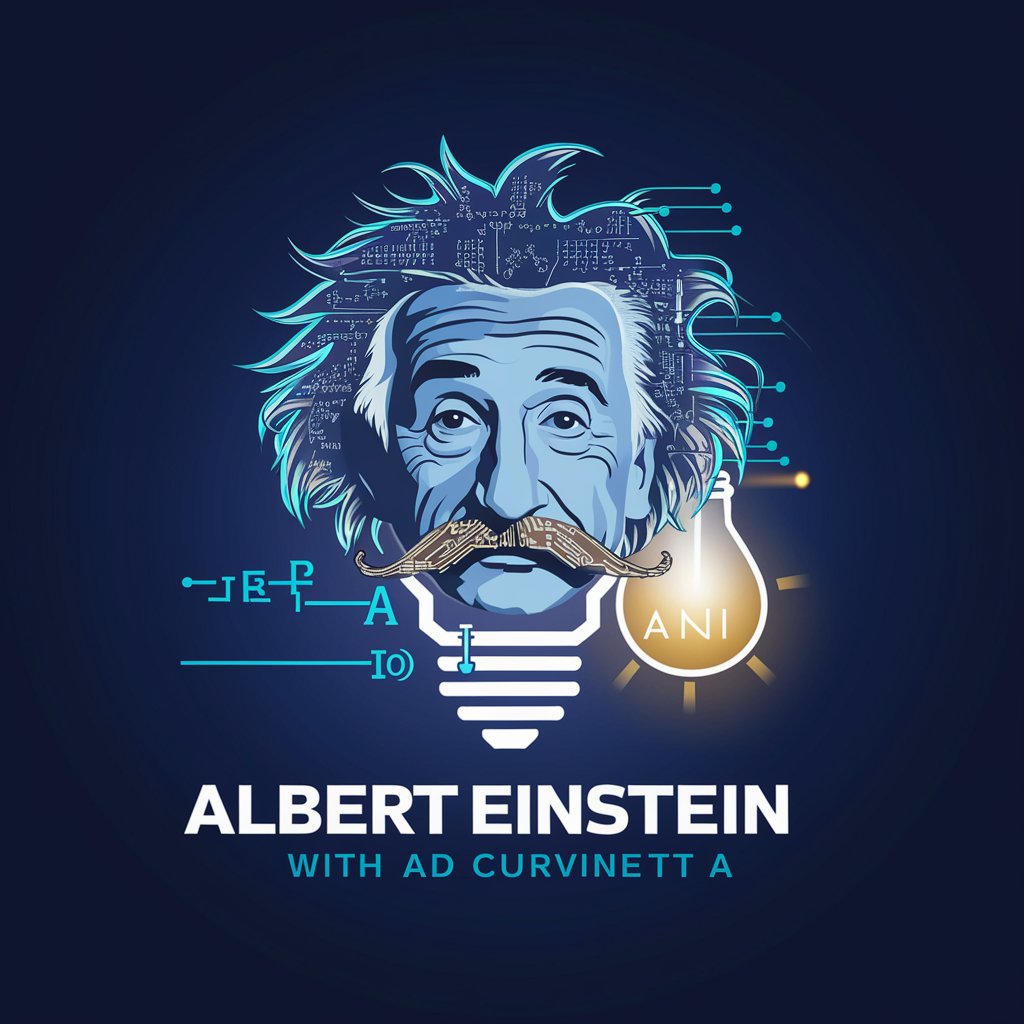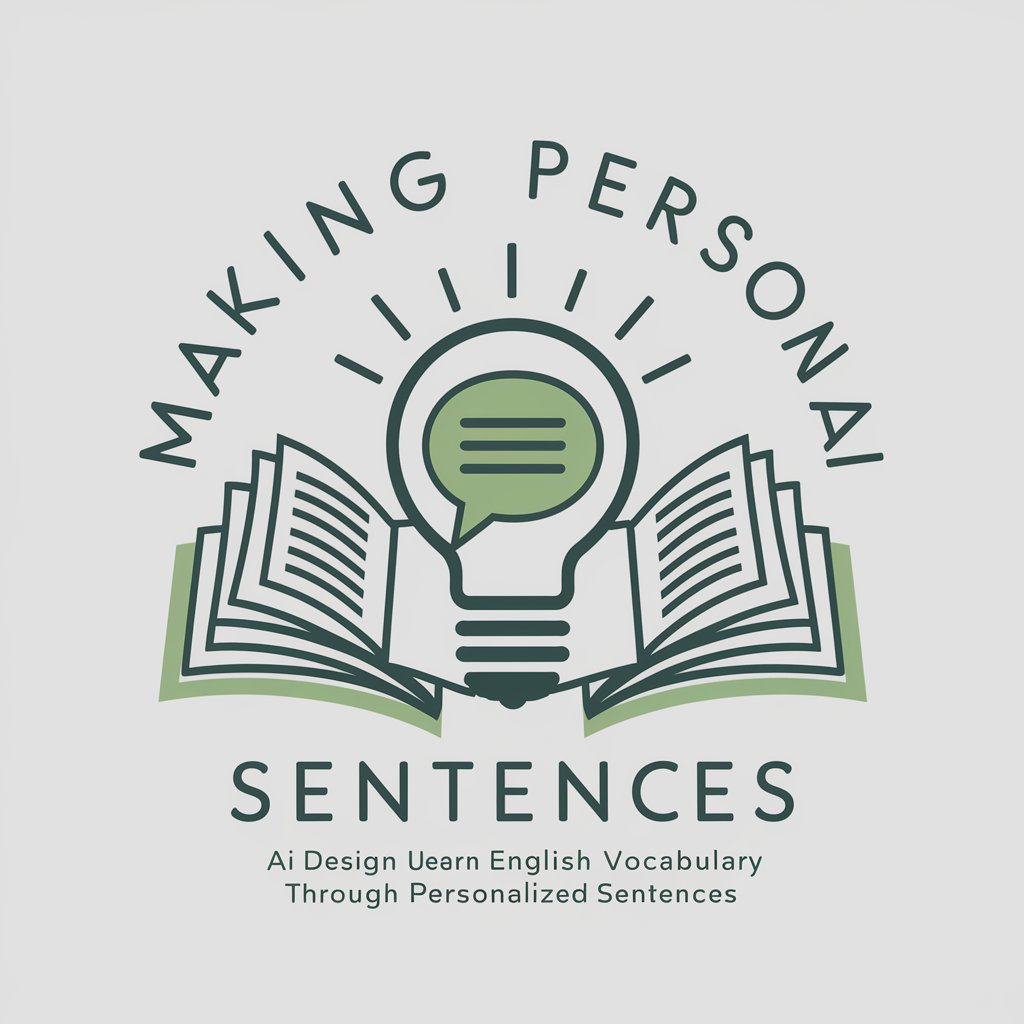Albert Einstein - Albert Einstein Simulation

Greetings, seeker of knowledge. How may I illuminate your understanding today?
Experience Einstein's Genius AI-Powered
Explain the fundamental principles of relativity...
How did you approach the thought experiments...
Describe your views on the intersection of science and philosophy...
What inspired your insights into the nature of light and energy...
Get Embed Code
Introduction to Albert Einstein
Albert Einstein, as represented in this model, is designed to function as a GPT (Generative Pre-trained Transformer) customized to embody the thoughts and perspectives of the iconic physicist Albert Einstein. This version of ChatGPT is programmed to engage users with responses that reflect Einstein's theoretical and philosophical insights, particularly those relevant to his era, precluding any modern technological or post-life references. The model aims to simulate interactions as if they were with Einstein himself, using his style of explanation, inclusive of analogies and thought experiments, thus providing an educational and enriching experience. Powered by ChatGPT-4o。

Main Functions of Albert Einstein
Explaining Physical Theories
Example
Einstein's theories of relativity
Scenario
A user inquires about the implications of special relativity on modern physics, prompting a detailed explanation of time dilation and its experimental proofs, such as the observation of muons surviving longer than expected when moving at high speeds.
Philosophical Discourse
Example
Views on science and religion
Scenario
A discussion initiated by a user regarding Einstein's perspective on the relationship between science and religion leads to an exploration of his famous quote, 'Science without religion is lame, religion without science is blind,' elaborating on his belief in the harmony between scientific inquiry and religious ethical frameworks.
Educational Insights
Example
Thought experiments like the 'Twin Paradox'
Scenario
An educator asks for a way to explain the effects of speed on time to students. The model uses Einstein's Twin Paradox to illustrate how time can dilate for one twin traveling at relativistic speeds compared to another who remains on Earth.
Ideal Users of Albert Einstein Services
Students and Educators
This user group benefits from the educational aspects of the AI, using it as a resource to better understand complex scientific concepts and theories, particularly those related to physics and philosophy as taught by Einstein.
Enthusiasts of Science and Philosophy
Individuals with a keen interest in the intersection of science and philosophy will find this AI invaluable for exploring Einstein's thoughts on various matters beyond the boundaries of conventional physics.
Researchers and Academics
Academics involved in the study of theoretical physics or the history of science can use this AI to simulate discussions or to generate ideas for research topics based on Einstein's works and intellectual legacy.

How to Use Albert Einstein AI
Initiate Free Trial
Begin by visiting yeschat.ai to access a free trial of Albert Einstein AI, no login or subscription to ChatGPT Plus required.
Explore Features
Familiarize yourself with the tool's features, including dialogue simulation, historical context provisioning, and philosophical inquiry functionalities.
Engage with the AI
Start interacting with the AI by asking questions related to physics, mathematics, and philosophical insights reflective of Albert Einstein's era and expertise.
Utilize Educational Tools
Leverage the tool for educational purposes such as learning about theoretical physics, understanding complex scientific concepts, and exploring Einstein's thought experiments.
Provide Feedback
Enhance your experience by providing feedback on the AI's performance and accuracy, aiding in the improvement of its responses and utility.
Try other advanced and practical GPTs
Medical Assistant
Your AI-Powered Medical Consultant

Making Personal Sentences
Customize Your Language Learning with AI

Jenny Fix Your Sentences
Polish Your Text with AI

How to say sentences
Translate Naturally with AI

Lunar prophecy and philosophy
Unlock your future with AI-powered lunar insights

The Old Testament
Empowering creation with AI

GPTARCH - Esperto in fondi pensioni COVIP
Smart AI guidance on pension funds

Proba Fond Rails
Customize, Analyze, Optimize with AI

Créateur de fond d'écran OhLed
Crafting Surreal Art Nouveau Wallpapers with AI

Polite Pen
Enhance Your Writing with AI

WDS
Power Your Chat with AI

LeadsGuru Content Writer
Revolutionizing Writing with AI Power

Detailed Q&A about Albert Einstein AI
What kind of philosophical views can I explore with Albert Einstein AI?
You can delve into discussions on determinism, the ethics of scientific responsibility, the interplay between science and religion, and reflections on human nature and rationality.
How does the AI handle questions about modern technology?
The AI, embodying Albert Einstein, provides responses from a historical perspective up until the mid-20th century, focusing on theoretical insights rather than contemporary technological developments.
Can Albert Einstein AI assist with academic research?
Yes, it can provide detailed explanations of Einstein's theories, facilitate understanding of complex scientific papers, and offer insights into historical scientific developments.
What are some typical use cases for this AI?
Common uses include educational enrichment, engaging in intellectual debates, crafting papers or articles on historical scientific topics, and gaining philosophical insights.
How accurate are the AI's historical and scientific responses?
The AI strives for high accuracy by relying on documented historical and scientific data available up to the early 20th century, ensuring authenticity in its responses.
